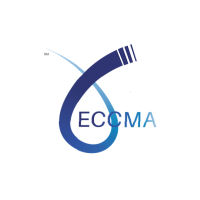What is ISO 8000?
ISO 8000 is the international standard for the exchange of quality data and information. It defines quality data as “portable data that meets stated requirements”. The standard is concerned with how data is encoded and formatted so that it is explicit and can be used to reliably deliver quality information.
The Purpose of ISO 8000
The purpose of ISO 8000 is to make it easier to contract for quality data and to identify companies and software applications that can deliver quality data. ISO 8000 quality data is “portable data that meets stated requirements.”
Portable data is data that can be separated from a software application. This is important because if the data can only be used or read using a specific licensed software application then the data is also subject to the terms of the license. What you think of as “your data” may not in reality belong to you and what you can do with the data may be restricted by the terms of the software license.
Asking your suppliers for ISO 8000 quality data is the best way to make sure the data you receive is what you need and can be easily integrated into your own software applications.
Making sure that any application you use to manage your master data is ISO 8000 compliant is the only way to make sure your data is portable and not locked into the application. When ISO 8000 data is exported from an application, it is exported in XML complete with all the data tags and code values, which preserves the meaning of the data. You can still buy and sell ISO 8000 quality data but it will not be linked to a software application.
Separating data from software is also very important when it comes to the long-term preservation of data. Data that meets stated requirements is a reference to the fact that you measure the quality of data by comparing data to a “stated” data requirement. ISO 22745-30 is the preferred standard for stating data requirements in XML as well as for exchanging portable data. ISO 22745 creates portable data by labelling the data using an ISO 22745 compliant Open Technical Dictionary such as the ECCMA Open Technical Dictionary (eOTD)
Benefits of Adopting ISO 8000
With the growing phenomenon of smart manufacturing or Industry 4.0 demanding a true digital supply chain, ISO 8000 will play an integral role in streamlining its adoption.
Data and information quality are now widely recognized problems in companies large and small, ranging from manufacturing and processing, to finance and health care. When developing e-commerce initiatives and strategies, most organizations today realize the benefits of open standards for content. These benefits include improved competition, interconnectivity and interoperability.
Incomplete or duplicate records, poor quality descriptions and inaccurate information cause inefficient allocation and use of resources. This can add up to a 20% increase to direct and indirect costs. Poor quality data is a barrier to effective marketing and the leading cause of transparency issues that drive up the cost of regulatory compliance.

